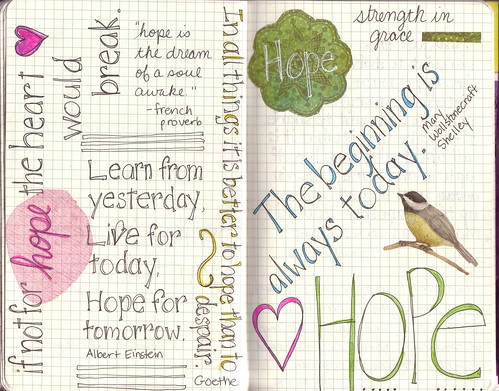If a child has a hearing problem, it’s usually the case that a parent or teacher will notice it, and the kid gets a first visit with an audiologist for testing.
With adults who experience hearing loss over a long, slow period of time, it’s too common for a trip to the audiologist to get delayed, often on the order of several years. (The average procrastination period from first noticing a possible hearing issue to getting hearing aids is seven years, as I’ve noted in previous posts here. An estimated 50% of people who could benefit from hearing amplification do nothing about it, ever.)
All involved parties — the hearing-impaired person, that person’s family and friends, audiologists, and hearing-aid manufacturers — benefit from reducing that seven-year wait to get the technology in the ear in such cases. Fortunately, new technology for personal computers, smartphones, and digital tablets appear poised to address this problem.
One of my fellow bloggers here on Open Ears recently pointed me to Mimi, a nice app for Apple iPhones and iPads. (Sorry, it’s only for the Apple crowd for now; but, there are alternative self-hearing-test solutions for everyone else. More on that later.) It’s a brilliant free app, developed by audiology entrepreneurs Philipp Skribanowitz and Pascal Werner, which allows you to quickly test your hearing and get results that aren’t much different than if you got tested by an audiologist. It can then simulate what your corrected hearing would be like, which can be an eye-opener, or perhaps “ear-opener” is the better term. To do a Mimi test, you can use either a good-quality pair of over-the-ear headphones or the earbuds that came with your iPhone or iPad, and find as quiet a place as possible to run the test.
(This TechCrunch article gives a good overview of the app and Mimi’s founders’ hopes for their technology.)
OK, let’s get this out of the way first: you wouldn’t want to depend on the results of an at-home hearing test on your phone to order hearing aids using your do-it-yourself audiogram. One big reason: you won’t be testing in a soundproof room. But, a quick self-test might just make some people realize that they have some hearing loss, and motivate them to get a professional hearing test sooner.
After testing myself, sans hearing aids, using Mimi and a pair of over-the-ear headphones and confirming the obvious — that I have hearing loss bad enough to require a solution — I convinced my wife to test her ears using the Mimi app. Her self-perception is that she does not have hearing loss yet, at age 54. In recent months, I’ve wondered if she’s got a bit of hearing impairment going on, since it’s happened more often that she can’t understand something I’ve said. (It’s also possible that I sometimes speak a bit quieter in private conversations since getting my hearing aids one year ago, the result of perceiving my own voice as being louder when I speak than pre-hearing aids.)
She agreed to let me post the results of her Mimi test here:

So, not great, but not terrible. Her Mimi-calculated “hearing age” is three years older than her physical age. And as the chart on the left shows, she has a bit of trouble hearing at higher frequencies; and her left ear appears to be functioning not quite as well as her right.
What really raised my wife’s eyebrows in amazement was when she had Mimi simulate hearing as if it was corrected based on the profile above. She noticed a significant difference, and told me that she was quite surprised by that.
While she still doesn’t think she’s ready to get hearing aids, this little experiment did make her aware of the typical hearing loss of an adult in her mid 50s compared to when she was younger. Her plan is to get an appointment at our audiologist’s office for earwax removal, which she suspects will improve her hearing.
Sure, this test with my spouse was anecdotal, but I believe that if more people who suspect that their hearing isn’t what it used to be — or who hear from family and friends that they should consider getting their hearing checked — could be exposed to the existence of the Mimi app and other alternatives, many more people would check their own hearing at home. It’s less threatening or scary than visiting an audiologist, who “might find something seriously wrong with my ears” or be an “unnecessary expense.” Such self-tests most likely will result in more people with age-related hearing loss making that appointment with an audiologist sooner, since the app’s data will show what their minds have been denying.
As mentioned above, Mimi is not the only self-test application out there. Here are a few other options:
- Self-Test for Hearing Loss Checklist: this is simply a list of symptoms that may indicate hearing impairment. It’s a good place to start prior to taking a self-serve online or mobile-device hearing test.
- Online Hearing Test at OnlineAudioClinic.com.au: use your computer and headphones for this; it tests ability to decipher spoken words over varying background-noise levels.
- Online Audiogram Hearing Test: another computer-and-headphones test; this one uses tones to determine your personal audiogram.
- Test Your Hearing (Android app): less sophisticated than Mimi, but works on smartphones running the Android operating system.
- Hearing Test (Android app): another smartphone app for Android that creates a self-test audiogram.
- Hearing Test (iPhone/iPad app): here’s one more for Apple users; this one costs US 99 cents.
- Search Google for more. There are lots of online hearing tests, and a lesser number of mobile apps. Fortunately, most of them are free.








